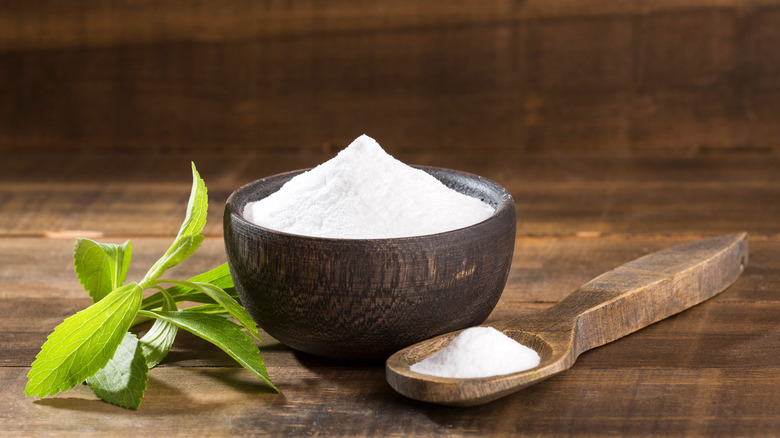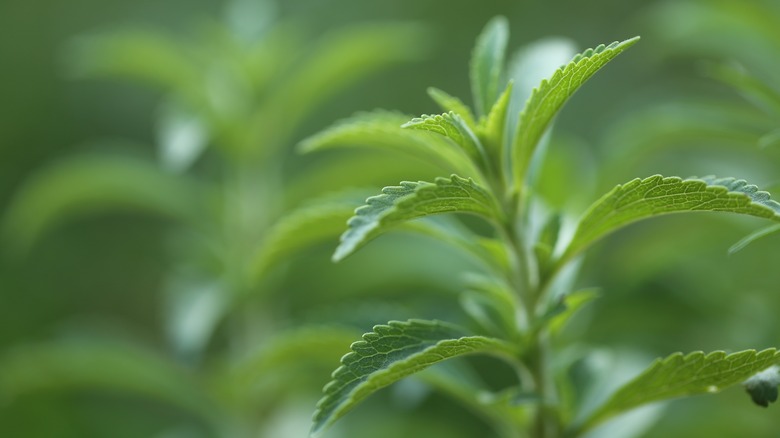The Real Reason Stevia Could Quickly Become The Top Sugar Substitute
It shouldn't be news to anyone that sugar, when eaten in excess, can have a devastating effect on your health, being a cause of such threatening conditions as obesity, diabetes, high blood pressure, chronic inflammation, and fatty liver disease, all of which put one at a higher risk of having a heart attack or stroke (via Harvard Health Publishing). Again, that's when sugar is eaten in excess, but the issue is it almost always is. In fact, the amount of added sugars in beverages and packaged foods has steadily risen.
Some are seeking to break the trend by turning to sugar substitutes. Artificial sweeteners such as aspartame are low in calories, but they pose risks just as serious as sugar, if not more so, having been linked to an increased risk of cancer. But there are also other natural sweeteners, the most notable of which is stevia. Though it has no calories and hasn't been linked to any forms of cancer or other serious diseases (via CookingLight), the price has always been the main factor preventing stevia from surpassing synthetic alternatives in the zero-sugar game. FoodNavigator-USA notes that stevia costs six to 15 times more than most artificial sweeteners, but a recent development might turn the tide in its favor.
The Chinese company growing extra-sweet stevia
FoodNavigator-USA reports that Chinese stevia manufacturer Howtian has grown what may be the sweetest stevia plants in history. But, to understand how they got there, you need to know a little bit of the science behind stevia. The powdered sugar substitute is made by extracting compounds called steviol glycosides from the leaves of Stevia rebaudiana plants, per Food Insight. The most common type of these glycosides is Rebaudioside A, or Reb A, which holds the key to Howtian's breakthrough.
According to FoodNavigator-USA, as recently as 10 years ago, the average stevia plant produced a Reb A yield of just 4%, gradually increasing to around 7% more recently. However, this year, Howtian averaged a 9.5% yield of Reb A from its stevia crop, with some plants yielding as high as 12%. To that end, the company believes stevia will be adopted far more quickly in the most price-sensitive industries, such as beverages, snacks, and sports nutrition. This might very much be the end of beverages and food items with too high amounts of sugar to even consider them safe to consume.

